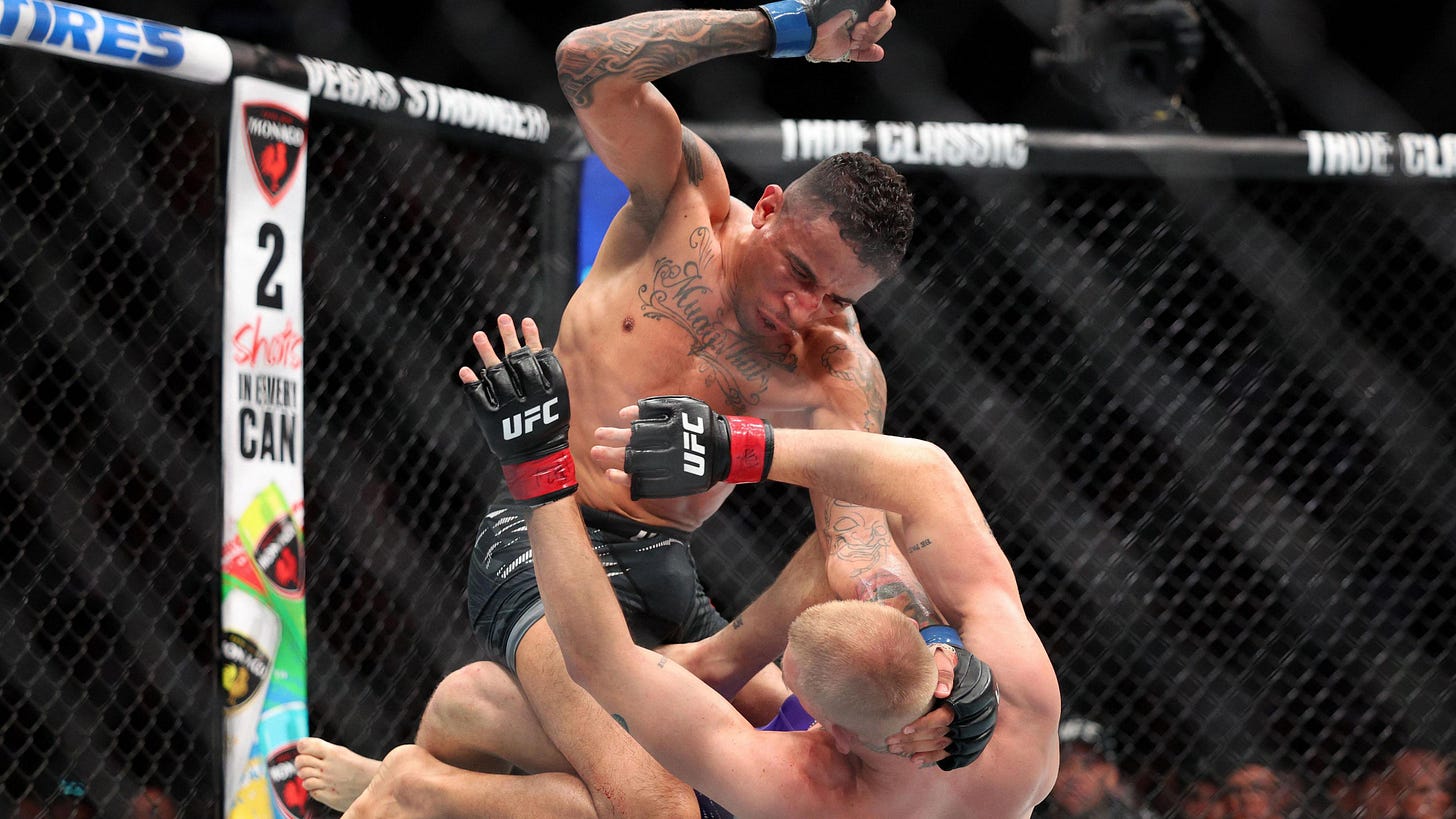The nerd behind the Nerds: Data Science in MMA
The Fighting Nerds, data science in MMA and the potential MMA analytics era
The Fighting Nerds are the hottest team in MMA right now, even after Carlos Prates’ recent decision loss to Ian Machado-Garry in Kansas City. Founded by Pablo Sucupira and Caio Borralho in São Paulo, the team is built around a simple idea: fighting is just a problem to be solved.
And increasingly, the solution comes through data.
During Prates’ fight week, a short ESPN video featuring the team’s data scientist, Ariel Cyrulin, caught attention online. It showed something MMA fans aren’t used to seeing: code, stats, and algorithms being used to plan a fight.
Cyrulin is a fascinating figure. A self-taught programmer, he dedicated 12 hours a day to learning data science after COVID-19 disrupted his shot at a college scholarship. He used this to inform sports prediction, and found real success, especially within MMA.
With his strong track record of predicting MMA fights, he messaged Pablo Sucupira with some of his analytical work. Sucupira saw the potential immediately and hired him that same day .
Cyrulin’s role goes way beyond watching tape. In fact, that was one of the criticisms floating around after the ESPN video: people assumed he was just another analyst studying fights. But as he explained when I spoke to him, tape is just the validation tool. The real work starts with identifying three to five key statistics about an opponent, then using tape to check if the patterns hold.
He doesn’t build gameplans, he builds insights. And Sucupira turns those into strategy.
One of Cyrulin’s proudest moments came when Jean Silva beat Melsik Baghdasaryan. I didn’t push as to what he saw in the statistics that informed the game plan, but whatever it was became the key to victory.
In MMA, those tiny advantages matter. A single tendency, uncovered through data, can be the edge that separates a win from a loss, or a championship from CTE.
Cyrulin’s work is just one example of something larger happening in the sport.
Other leagues have already had their data revolutions. Baseball had Moneyball - the Oakland A’s Billy Beane famously used data to leverage a low budget team to success. The NFL embraced analytics in the 2010s, with coaches like Sean McVay and Mike Vrabel leaning on win-probability models to inform bold fourth-down decisions.
Back when I was covering the NFL, I was skeptical. I saw data as something that risked sterilising the sport, stripping it of spontaneity, emotion, and chaos. Y’know, the things that made the sport the sport. But with hindsight, I realise now that the best coaches weren’t obeying algorithms, they were consulting them.
McVay always trusted his own eye. He just used the data to sharpen it. And that’s exactly what Cyrulin is doing. Data doesn’t replace the human element but it simply it amplifies it.
MMA has always evolved in response to outside pressures.
In the early days of Vale Tudo, fighters from different disciplines tested their skills in brutal, regulation-free contests. That couldn’t last. Political pressure, including from Senator John McCain, who famously called it “human cockfighting”, pushed the UFC into legitimacy with rules, weight classes, and a modern ruleset. Fighters adapted in training camps by choosing to study more technique than just relying on brute force.
Then came the globalisation of the sport. The 2010s saw a flood of talent from Russia, especially Dagestan, introducing an entirely new grappling-based puzzle to solve. Camps had to adapt to anti-wrestling, takedown defense, and a more hybrid approach to MMA.
Now, we’re entering another shift.
The UFC’s partnership with IBM Watson aims to turn fight data into real-time insights and statistical storytelling. The expansion of legal gambling in the U.S. has pushed data capture to become faster, cleaner, and more detailed. Everything, every strike, every feint, every takedown, is recorded and analysed from every possible angle, accessible at our fingertips.
So it makes perfect sense that gyms would start using that data to prepare.
Cyrulin isn’t replacing strength coaches, nutritionists, or S&C teams. He acknowledged in our interview that he is a nice-to-have in the team, and it’s unlikely that data scientists will become fundamental parts of training camps.
But, in a game of inches, this insight can be that final 1% that can create the edge.
For The Fighting Nerds, Carlos Prates’ loss was just another data point in Cyrulin and Sucupira’s system. It’s another problem to solve.
For the rest of the MMA world, this might just be the start of something much bigger.
MMA has always been about evolution. And if data is the next weapon, the Fighting Nerds are already ahead of the game.





